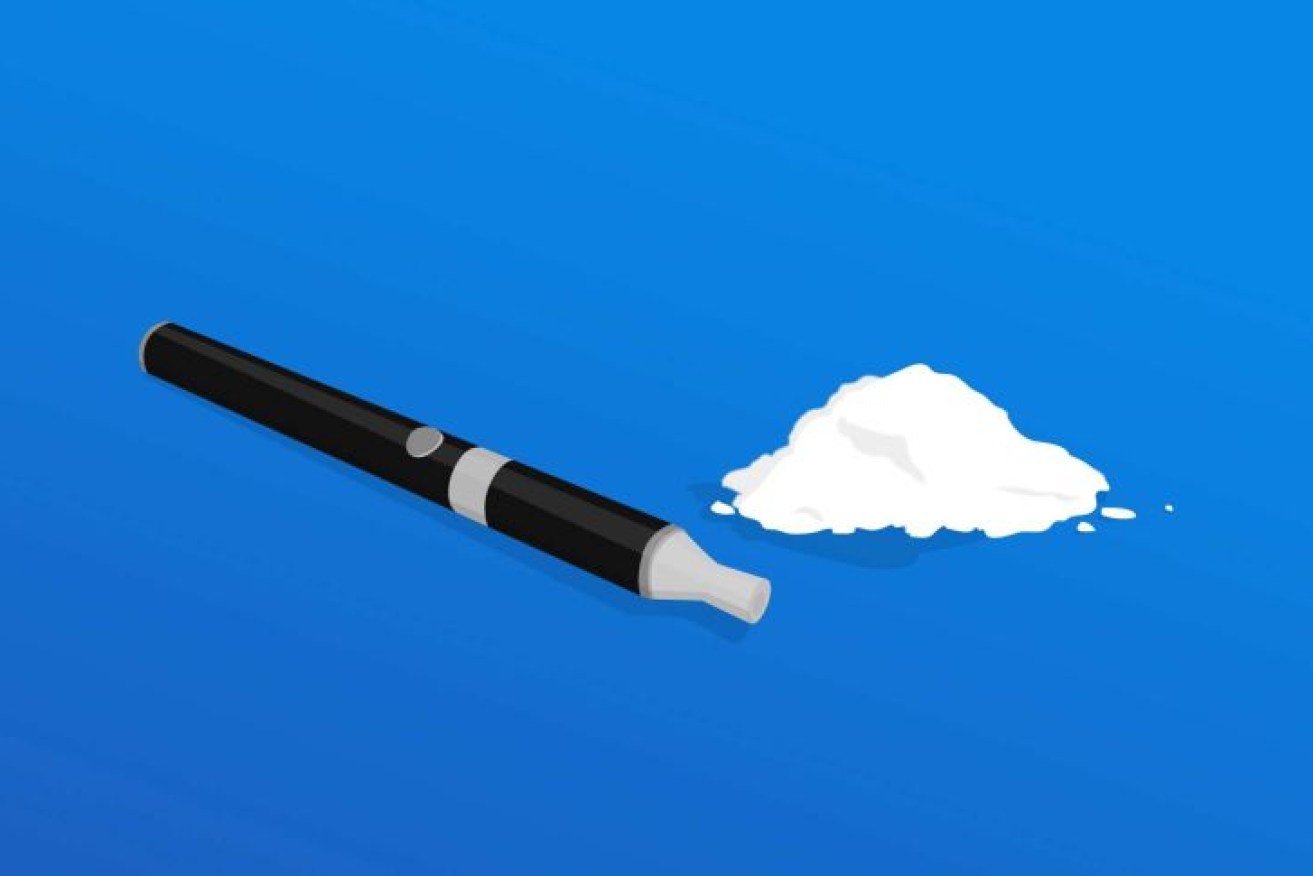Cocaine, vaping use rises in young people, smoking and drinking rates down
More young Australians are experimenting with vaping, even if they’ve never smoked cigarettes, but they are turning away from alcohol and illicit drugs.

Young Australians are taking less illicit drugs compared to 20 years ago. (Image: Emma Machan)
In 2016, just over 2.5 per cent of people aged 18–24 were vaping.
In 2019, that figure jumped to more than 5 per cent, with the majority saying they tried it out of curiosity.
Michael Farrell, director of the National Drug and Alcohol Research Centre UNSW, said the increase was concerning.
“It is actually less harmful than cigarette smoking, but we don’t want to see a whole generation of people vaping and possibly also progressing to cigarette smoking as a result of that,” Professor Farrell said.

Critics say vaping has become popular because of targeted marketing. (Photo: Unsplash: Donn Gabriel Baleva / ABC News: Jacqueline Howard)
The data comes from a survey of 23,000 Australians aged over 14, conducted every three years by the Australian Institute for Health and Welfare.
Michelle Jongenelis, from the Melbourne Centre for Behaviour Change at the University of Melbourne, blamed the uptake on the marketing of e-cigarettes to young people.
“Increasing use among non-smoking youth speaks to the vaping industry’s continued targeting of this population via youth-oriented marketing and the development of new youth-oriented e-juice flavours, such as bubblegum and Red Bull,” she said.
“These are the same techniques used by the tobacco industry in the 1960s and history has shown us how that turned out.”
But Dr Colin Mendelsohn, a smoking cessation physician, said the vaping industry did not target younger people in Australia because it was not allowed to advertise at all.

The number of Australians using e-cigarettes overall rose from 8.8 per cent in 2016 to 11.3 per cent in 2019. (Photo: ABC Sunshine Coast: Megan Kinninment)
His view was that even the more youthful flavours were are an essential part of vaping for people of all ages.
“There are thousands of vape flavours,” he said. “You’d be surprised at how many adults use those flavours.”
The survey found younger vapers were far more likely than older people to have never smoked cigarettes.
Almost 40 per cent of 18-24-year-olds who vaped were non-smokers, compared with fewer than 10 per cent of people aged 40 and over.
Mendelsohn said that does not mean vaping is a gateway to smoking tobacco.
“There is no evidence young people who start vaping but never smoked will go on to become regular smokers, if they would not have done so anyway,” he said.
Fewer young people drinking alcohol
Researchers found young people today were less likely to drink, smoke, or take illicit drugs than previous generations at the same age.
“Compared to young people in 2001, people aged 14 to 29 in 2019 are less likely to smoke tobacco, drink alcohol, or consume illicit drugs,” head of AIHW Housing and Specialised Services Group Professor Gabrielle Phillips said.

Researchers say the trend is global and can’t be explained by local factors. (Photo: AAP: April Fonti, File Photo)
And according to Farrell, being more “health conscious” may be the reason fewer young people are starting drinking alcohol.
“They are more physically fit [and] they exercise more often,” he said.
It could also be due to fewer young people smoking cigarettes, he said.
“Smoking rates have gone down. And the more smoking rates go down, the broader health behaviour around it goes up,” Farrell said.
Cocaine use near 20-year high
Cannabis was the most commonly used illicit drug in 2019.
Of those surveyed, more than one in 10 Australians used cannabis in the previous year, followed by cocaine.

According to the AIHW report, in 2019 cannabis was the illicit drug most commonly used by Australians. (Photo: Flickr: Brian Shamblen)
In fact, cocaine use was the highest rate it had been in almost two decades.
And that was probably because cocaine was more available than other drugs, Farrell said.
“It’s a reasonable thing to think that it’s partially supply driven rather than simply demand-driven,” he said.
“We have to remember the quote that cocaine is God’s way of telling you, you have too much money.”
Those people who were using cocaine only did it every now and then.
The use of methamphetamines remained stable, but those who took drugs like ice were much more likely to be frequent users.
People likely to stick with their habits
There were also noticeable trends when it came to a person’s relationship with a substance.

Australian researchers reviewed the link between smoking and dementia in studies done on more than 13,000 people.(Photo: Ian Waldie: Getty Images)
Those who used substances earlier in life continued to use them as they got older, while those who consumed drugs or alcohol at more moderate levels were less likely to start taking them at riskier levels as they aged.
“The average age of people who use [illicit] drugs has risen since 2001,” Gabrielle Phillips from the AIHW said.
“In 2001, people in their 20s were most likely to have used an illicit drug, but in 2019 it was people in their 40s,” she said.
“This could be due to people in their 20s in 2001 continuing their drug use.”
-ABC / Sophie Scott, and the Specialist Reporting Team’s Penny Timms and Mary Lloyd












